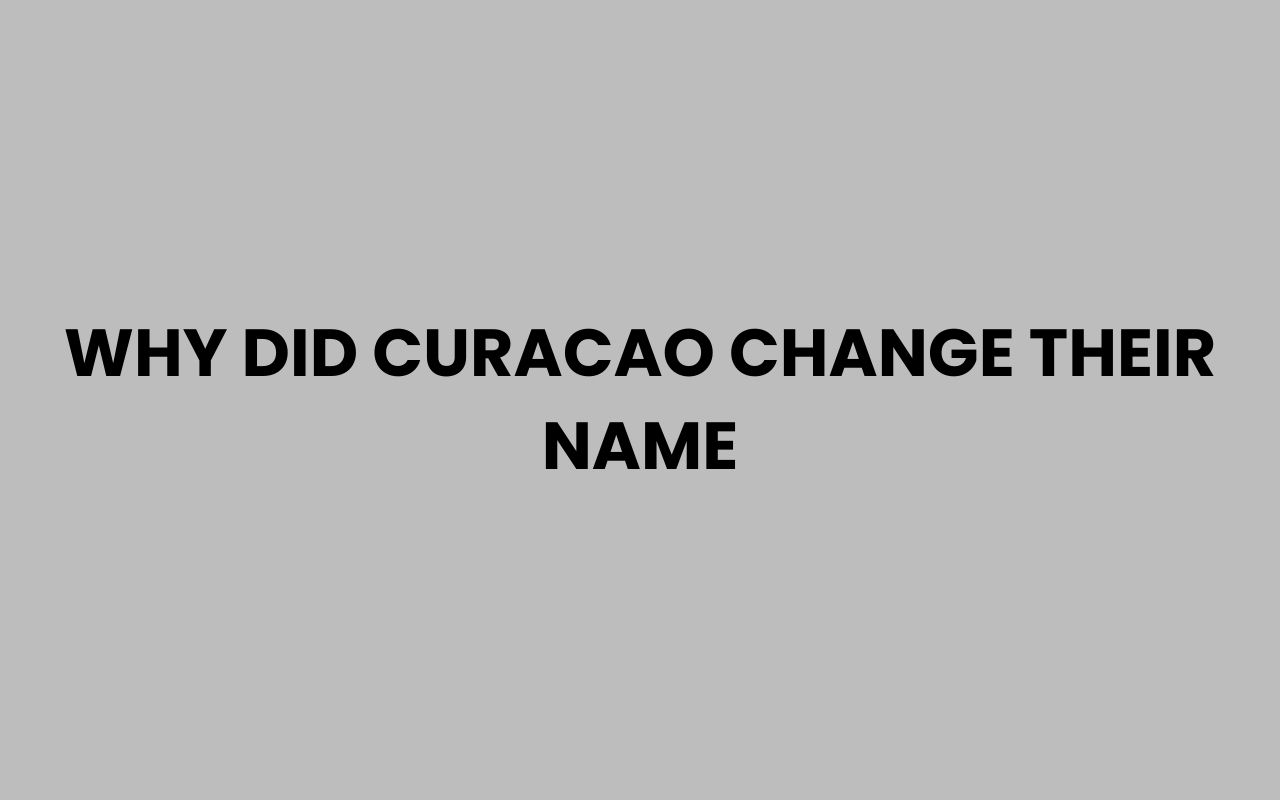The island of Curaçao, renowned for its pristine beaches and vibrant culture, has undergone significant transformations throughout its history. One of the most intriguing aspects of its evolution is the change in its name.
Understanding why Curaçao decided to alter its name involves delving into its rich history, colonial influences, and the aspirations of its people.
A Brief History of Curaçao
Curaçao’s history is marked by numerous cultural influences. Originally inhabited by the Arawak and Caiquetio people, the island was claimed by Spanish explorers in the early 16th century.
However, it was the Dutch who established a significant presence on the island, turning it into a thriving trade hub.
The island’s name has its roots in its indigenous past. It is believed that the original name, “Curaçao,” is derived from the Portuguese word “coração,” meaning “heart,” or from the indigenous term “Kurazon,” reflecting the island’s central role in regional trade.
The Colonial Influence
During the colonial era, Curaçao became a melting pot of cultures. The Dutch West India Company played a significant role in shaping the island’s identity, bringing in enslaved Africans, Sephardic Jews, and laborers from various parts of the world.
Each group contributed to the island’s unique cultural tapestry.
As a Dutch colony, Curaçao’s name underwent various adaptations, depending on linguistic and administrative needs. The island’s multicultural population often referred to it in multiple languages, each adding its own phonetic twist to the name.
Navigating Identity and Autonomy
In the 20th century, as global decolonization movements gained momentum, the people of Curaçao began to seek greater autonomy. The desire for self-identity became a central theme in the discussions about the island’s future.
This quest for autonomy was not just political but also cultural.
The shift towards greater autonomy was marked by a deep reflection on the island’s identity. Many inhabitants felt that the name “Curaçao” had been heavily influenced by external powers and did not fully encapsulate the island’s unique heritage.
There was a growing sentiment that a name change could symbolize a new era of self-determination.
The Decision to Change the Name
The movement to change Curaçao’s name was initiated by local leaders who wanted to assert a distinct identity for the island. They argued that a new name could foster a sense of unity and pride among the island’s diverse population.
“A name is not just a label; it is a reflection of our history, our culture, and our aspirations for the future.” — Local Activist
The proposed name change aimed to honor the island’s indigenous roots while embracing its multicultural heritage. Various names were considered, each reflecting different aspects of the island’s identity.
The process involved extensive consultations with the local population, historians, and cultural experts.
Challenges and Controversies
Changing the name of a well-known geographical entity like Curaçao was not without its challenges. There were significant logistical and economic considerations, including updating legal documents, signage, and promotional materials for tourism.
Additionally, there were differing opinions among the island’s residents. While some embraced the idea of a name change, others feared it could lead to confusion and affect the island’s brand awareness in the international community.
| Pros of Name Change | Cons of Name Change |
|---|---|
| Promotes cultural identity | Potential confusion globally |
| Fosters unity among residents | Cost of rebranding |
| Symbolizes autonomy | Risk of losing tourism appeal |
The Outcome and Future Prospects
Despite the challenges, the movement to change the name of Curaçao gained momentum. After years of discussions and debates, a consensus was reached on a name that honored the island’s past while looking towards the future.
The new name, though not officially adopted yet, represents a blend of indigenous and colonial influences, a testament to the island’s complex history. It serves as a reminder of the resilience and adaptability of Curaçao’s people.
As Curaçao continues to navigate its path towards greater autonomy, the name change remains a powerful symbol of its aspirations. The island’s leadership sees it as a step towards solidifying its identity on the global stage, while fostering a sense of belonging among its residents.
Conclusion
The story of Curaçao’s name change is a reflection of the island’s journey through history. It highlights the ongoing struggle for cultural recognition and political autonomy faced by many post-colonial societies.
While the name change is a significant milestone, it is also a reminder of the island’s commitment to preserving its heritage while embracing the future.
Curaçao’s unique history and vibrant culture continue to captivate visitors from around the world. As the island moves forward, its name—whatever it may ultimately become—will remain a symbol of its enduring spirit and rich cultural mosaic.

